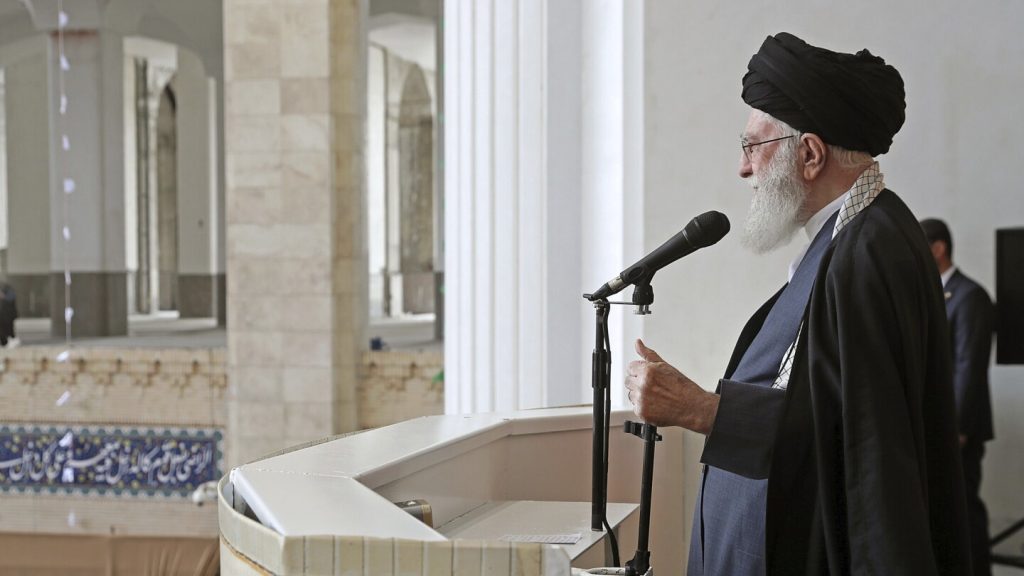Israel’s foreign minister has issued a warning to Iran, stating that if the Islamic Republic launches an attack from its territory against Israel, Israel will respond by attacking Iran directly. This threat comes in the midst of heightened tensions between the two countries following the recent killings of Iranian generals in a blast at the Iranian consulate in Syria. Despite not officially claiming responsibility for the attack, Israel has been preparing for a potential Iranian retaliation, marking a significant escalation in their ongoing conflict.
Iran’s Supreme Leader, Ayatollah Ali Khamenei, has vowed to retaliate against Israel for the attack on its consulate in Damascus, holding Israel responsible for the strike that resulted in the deaths of 12 individuals, including seven Iranian Revolutionary Guard members. Khamenei referred to the airstrike as an act of “wrongdoing” and equated it to an attack on Iranian territory. He called for punishment of the “evil regime,” without specifying the nature of retaliation. Both Khamenei and Israel’s foreign minister did not provide further details on how they would respond to each other’s threats.
In a prayer ceremony marking the end of the Muslim holy month of Ramadan, Khamenei criticized Western powers, particularly the United States and Britain, for supporting Israel in its conflict with Hamas in Gaza. He expressed disappointment in their failure to prevent the attack on the Iranian consulate and accused them of neglecting their responsibilities. Iran has a history of supporting anti-Israeli militant groups such as Hamas in Palestine and Hezbollah in Lebanon, while also refusing to recognize the state of Israel.
The attack on the Iranian consulate in Syria resulted in the deaths of not only Iranian generals but also Syrian and Hezbollah militia members. The incident has further exacerbated tensions between Israel and Iran, leading to mutual threats of retaliation. Israel’s readiness to strike Iran directly in response to any attack originating from Iranian territory underscores the seriousness of the situation and the potential for further escalation in the conflict between the two nations. Both sides have made strong statements indicating their willingness to respond forcefully to any acts of aggression.
The shadow war between Israel and Iran has seen various incidents and confrontations over the years, with both countries engaging in covert military operations and intelligence activities. The recent attack on the Iranian consulate in Syria is just the latest chapter in this ongoing conflict, which has regional and global implications. The involvement of powerful actors such as the United States and Western allies in supporting Israel, as criticized by Khamenei, adds another layer of complexity to the situation and increases the likelihood of a broader conflict erupting in the region.
As tensions continue to rise between Israel and Iran, the threat of direct military confrontation looms large. With both countries adopting a strong stance and issuing warnings of retaliation, the risk of further violence and instability in the Middle East remains high. The recent events have highlighted the need for diplomatic efforts to de-escalate the situation and prevent a full-blown war between Israel and Iran, which could have catastrophic consequences for the region as a whole. The international community will be closely monitoring the developments between these two longtime adversaries to prevent a further escalation of hostilities.


